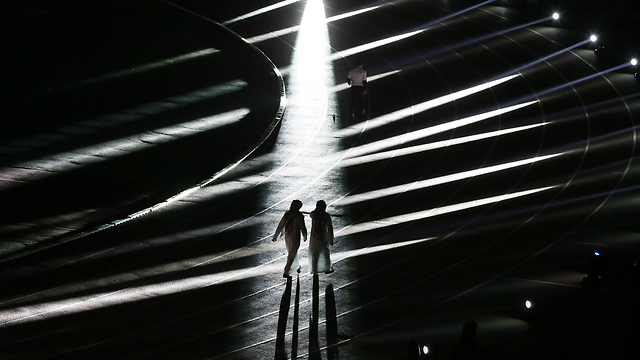
Future of sporting ban unclear after Gulf states reconcile
After 8 months of diplomatic tension over Qatari support of Muslim Brotherhood, Gulf states reach an agreement. However, it remained unclear whether boycotting of sports championships would be overturned.
The announcement was made by the Gulf Cooperation Council (GCC) and came after an emergency meeting in the Saudi capital Riyadh to discuss the dispute, which was threatening an annual summit set to be held in Qatar's capital Doha in December.

The complicated politics of the region have extended beyond the embassies to reach the supposedly apolitical turf of the sports stadiums. Israel is usually the target of banning by these countries. This time, however, it was the tiny Gulf monarchy of Qatar – scheduled to host the 2022 World Cup -- that was the target of a sporting boycott.
A source told the German news agency that the Emir of Qatar, Sheikh Tamim bin Hamad bin Khalifa Al Thani, agreed during the Sunday summit to halt the media campaign against the Gulf nations and to prevent al-Jazeera from smearing them. Furthermore, the Emir was ordered to devote efforts to increase cooperation with Gulf nations. Diplomats in Doha said that Qatar also promised the UAE that the Muslim Brotherhood would no longer be allowed to operate within its border.
The countries that started the boycott were Bahrain and the UAE, who announced over the preceding two weeks that they would not participate in the World Handball Championship that are to take place in Doha, the capital of Qatar, in early 2015. This was the first time that Bahrain had qualified for the prestigious tournament.
While Bahraini sources stated that the boycott was because of disputes with Qatar, the UAE said their decision was based on technical considerations. "The decision to withdraw is because of injury of five players on the team, which makes it difficult to find and train replacements," said Emirati sources.
Although no country officially confirmed that politics motivated the ban, Arab media labeled the move a "slap in the face of Qatar". Days after the boycott was announced, the UAE published a lengthy list of 83 organizations it considered to be "terror groups", including the Muslim Brotherhood, which enjoys widespread support in Qatar.
Following the announcements by the UAE and Bahrain, Egypt declared that it would not participate in the World Swimming Championships taking place in Doha at the end of November. The head of the Egyptian Swimming Federation, Yasser Idris, explained that when making the decision, he had considered Qatar's diplomatic stance towards Egypt since the ouster of Mohamed Morsi.
The Egyptian Handball Federation declared that despite the bans, it still planned to take part in the January championships in Doha.
After the agreement was reached over the weekend in Riyadh, it remained unclear whether tor not the boycotts would be abandoned.










